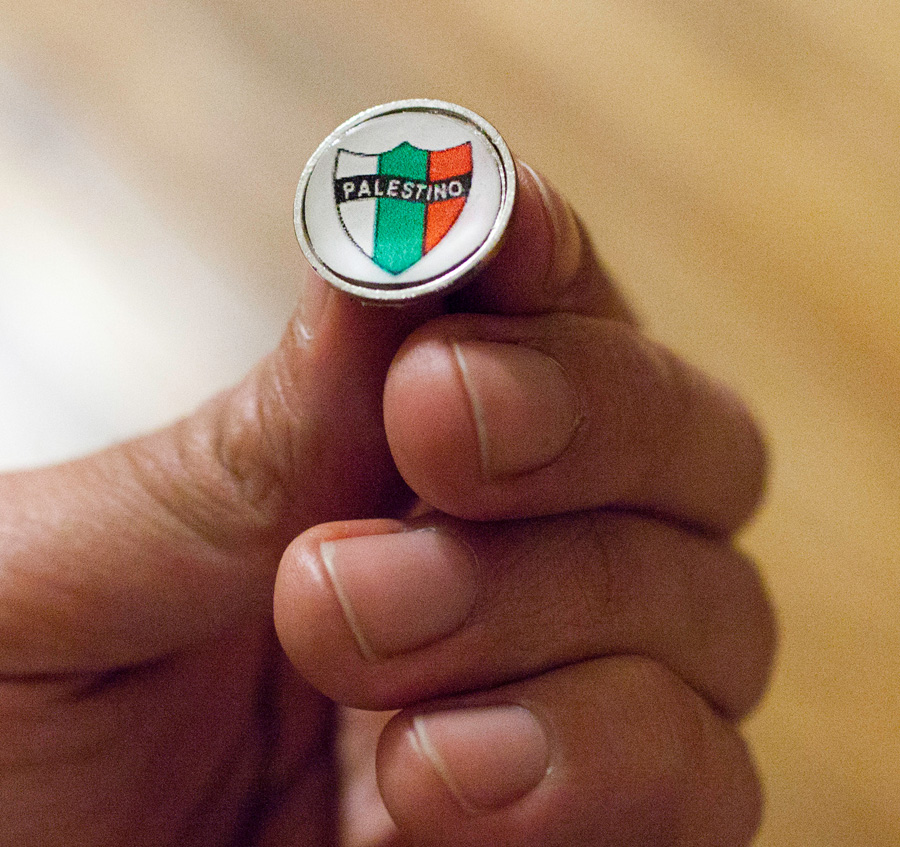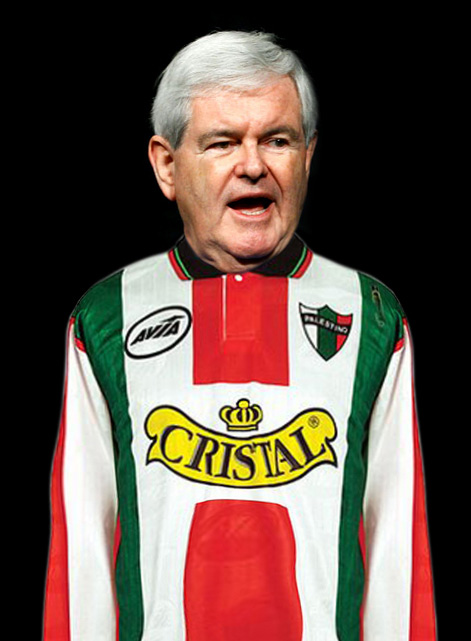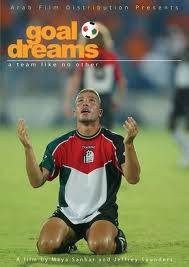In summer of 2006, during my first stint as curator of Mizna’s Twin Cities Arab Film Festival, I sought out a feature documentary film titled Goal Dreams, on the disturbed and perturbed experience of the Palestine national football team as it sought to qualify for the 2006 World Cup tournament in Germany. The festival committee that previewed the film liked it and voted to include it in the upcoming festival’s program. I thought it a heartwarming, accessible crowd pleaser that could draw in audiences who would otherwise not attend a film festival.
The particularity of the challenges facing the team leaves the viewer wondering how the Palestine Football Association had managed to assemble a team at all, a national team representing a state that hardly resembles a state. Without a functioning football leagueat the time (the West Bank Premiere League has been functioning without interruption since 20081), adequate funding, or a location in Palestine in which the team could train, no thanks to restrictions by the Israeli authorities, qualifying seems nearly unattainable, though possibly not other rewards--less tangible rewards.
To add to the experiential, financial, and logistical challenges the team faces, the national team’s players struggle with cultural adjustment, having descended from four continents, speaking several languages natively. Yet, the players’ commitment to their collective goal of promoting Palestine through sport persists despite the challenges that would eventually prove insurmountable.
Among the players are six of Palestinian descents hailing from South America, one of whom, a Chilean Palestinian named Roberto, piqued my curiosity about Palestinian immigration to Chile. I would later discover that Chile is home to the largest Palestinian population outside the Arab World2, a population thought to number to between 250 and 400 thousand people3.
Months then years would pass before Newt Gingrich would claim during his run for the Republican nomination for the US presidency that the Palestinians are an invented people. I was naturally enraged, though I recognized that posturing for approval and for financial support of his campaign may have informed his observation. For some reason, I found myself casually looking online for content on Palestinian Chileans. That was when I learned of C. D. Palestino, a Chilean first division professional football club. Upon visiting the club’s web site, I was pleased to see images of the team depicting the words “Bank of Palestine” in Arabic and in English printed on its jersey (though I’d have been happier if it had been in Arabic and Spanish), suggesting an association between new and old country confirmed by the team’s intent, in 2009, to be listed on the Palestinian stock exchange4.
Upon learning of the team’s genesis, I grinned with the satisfaction of the evident truth: Why would immigrants name a football club “Palestino” upon its founding, in 1920, if such identification didn’t mean anything to them, especially considering that such naming/founding had occurred twenty eight years before the founding of the Zionist state. The obvious answer is that these immigrant deliberately named the club because “Palestine” did mean something.
Soon thereafter, I went online looking to buy a Palestino jersey. Alas, there was none for sale on the club website and those few I did find elsewhere were exorbitant. All I could afford was a pin:

Unlike well-heeled Newt, who could afford any jersey his sour heart desires:
 Newt Gingrich comfortably retired to a Palestino jersey
Newt Gingrich comfortably retired to a Palestino jersey
*Goal Dreams is available in the US through Arab Film Distribution.
Works Cited
1. "Brief History (in Arabic)." Palestine Football Association. Palestine Football Association, 14 May 2012. Web. 14 Mar. 2012. <http://www.pfa.ps/article.aspx?id=2>.
2. "The people of Chile." this is Chile.cl: Chile's ofificial website. Fundación Imagen de Chile, 18 Feb. 2011. Web. 14 Mar. 2012. <http://www.thisischile.cl/Article.aspx?SEC=357&ID=1206>.
3. Smith, Douglas. "Story of Chile's Palestinian Refugee Community, Past and Present." The Palestine Chronicle. The Palestine Chronicle, 16 May 2011. Web. 14 Mar. 2012. <http://palestinechronicle.com/view_article_details.php?id=16724>.
4. Cerda, Claudio. "Soccer-Chile's Palestino tapping roots to go public." Reuters. Thomson Reuters, 17 Aug. 2009. Web. 14 Mar. 2012. <http://uk.reuters.com/article/2009/08/17/soccer-latam-chile-idUKLH07455520090817>.
